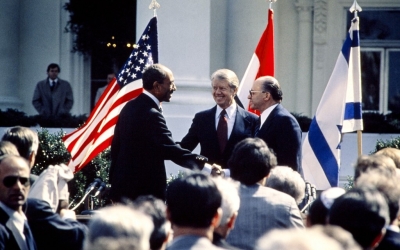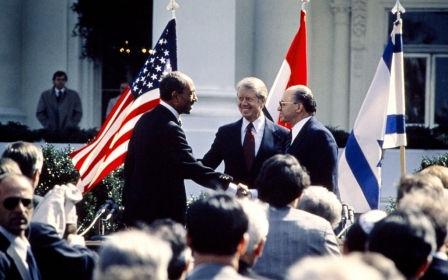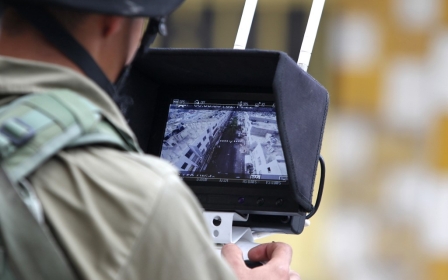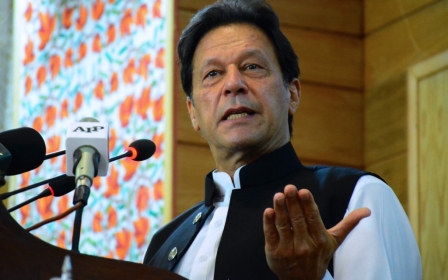Normalisation with Israel: Who is next?
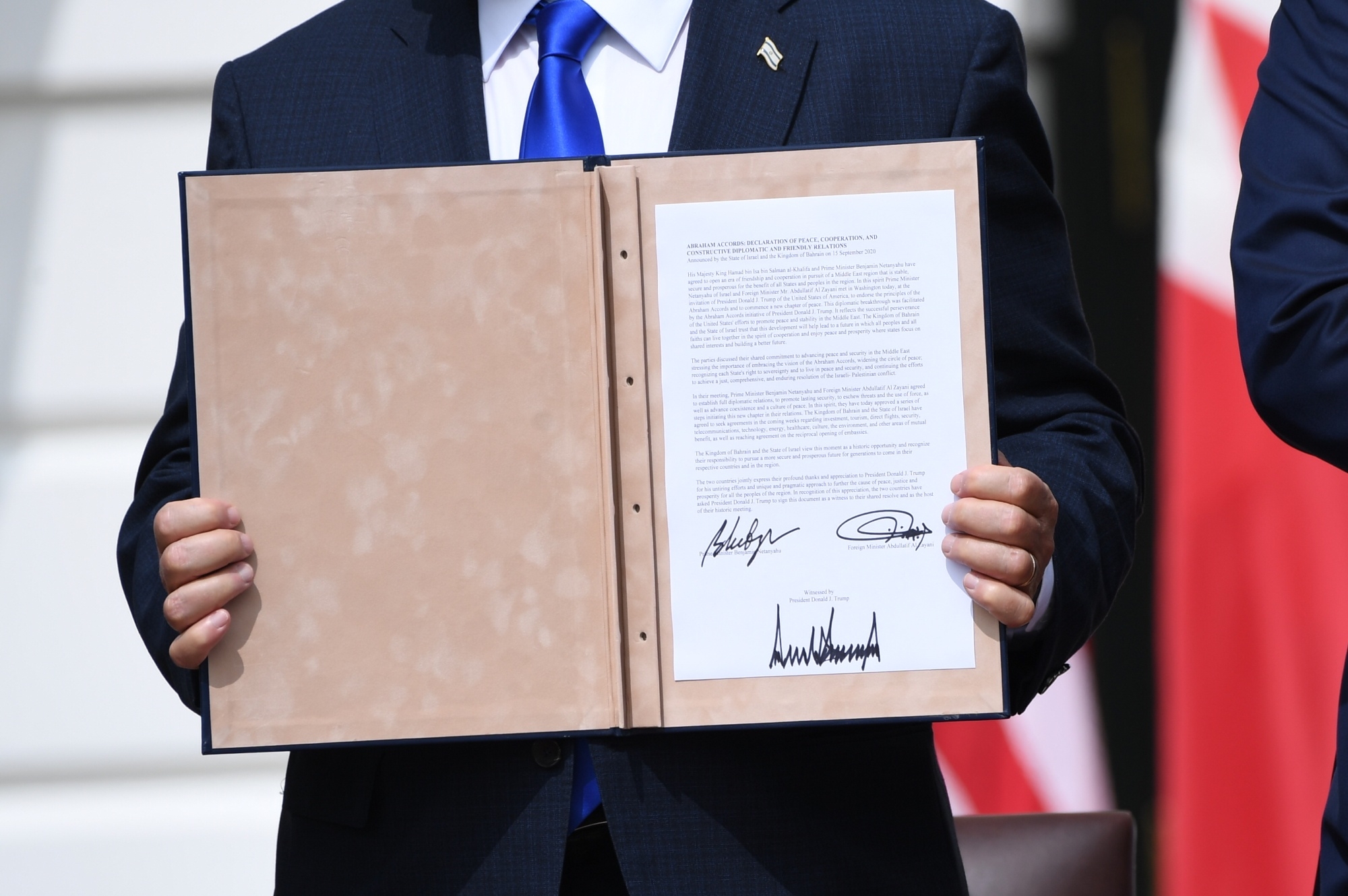
In the last months of his presidency, Donald Trump has made it his mission to broker as many deals as possible between Israel and countries in the Middle East and North Africa.
Since the UAE announced it was normalising relations with Israel on 13 August, speculation has been rife over which Arab states might follow suit.
Since then, Bahrain, Sudan and, most recently, Morocco have also announced deals of their own.
Before this year, the only Arab states to have peace treaties with Israel were neighbouring Egypt and Jordan - both of which had lands occupied by Israel following the 1967 war.
A number of Arab states - such as Qatar, Kuwait and Algeria - have categorically rejected the possibility of having full diplomatic relations with Israel so long as a resolution isn't reached regarding its occupation of Palestinian territories and the establishment of a viable Palestinian state.
Meanwhile, other states are either busy dealing with their own internal conflicts and tensions or retain large-scale hostility to Israel, making such a controversial diplomatic move unlikely in the near future.
Middle East Eye takes a look at countries considered to be next in line to normalise ties with Israel.
Oman
It is highly likely that Oman, a Gulf Arab country, will sign a deal with Israel.
Israel's intelligence minister had predicted that Oman and Bahrain would be the next Gulf countries to follow the UAE in formalising ties. Both were quick to convey support for the UAE after its August deal.
Oman's then foreign minister, Yusuf bin Alawi bin Abdullah, spoke with his Israeli counterpart Gabi Ashkenazi days after the UAE-Israel deal was announced, and the two discussed the “need to strengthen relations”.
Bin Abdullah also spoke with an official from Fatah, the ruling party of the Palestinian Authority, and expressed the sultanate’s support for a "comprehensive, just and lasting peace in the Middle East", and said that negotiations on an Israel-Palestine peace process needed to resume.
Despite Emirati and Bahraini statements, Palestinians have rubbished such claims as empty words.
Oman has already been in dialogue with Israel for years, with Netanyahu paying a rare visit to Oman in 2018, in what was seen as a sign of the latter's desire to play an influential role in the region. Netanyahu was the first Israeli leader to visit the sultanate since Shimon Peres in 1996.
Saudi Arabia
Trump and his administration have repeatedly suggested that Saudi Arabia would be among the next countries expected to sign a normalisation agreement with Israel - but Saudi leadership has sent mixed signals on the issue.
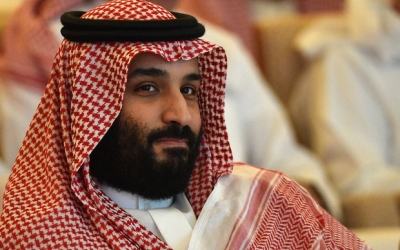
Saudi officials had previously stressed that the kingdom will not normalise relations with Israel outside of the framework of the 2002 Arab Peace Initiative, which calls for the establishment of a Palestinian state.
Saudi Foreign Minister Prince Faisal bin Farhan Al Saud has said that his government’s position in support of a Palestinian state, with East Jerusalem as its capital, had not changed.
“The kingdom's firm and established positions towards the Palestinian cause and the Palestinian people will not change by allowing the passage through the kingdom's airspace for flights coming to and departing from the United Arab Emirates to all countries, and the kingdom appreciates all efforts aimed at achieving a just and lasting peace in accordance with the Arab Peace Initiative,” he wrote on Twitter in September.
However, Saudi Arabia decided to allow the first flight between Israel and the United Arab Emirates to cross its airspace, a move hailed as a “tremendous breakthrough” by Netanyahu. A sermon by the imam of Mecca's Grand Mosque in September has been interpreted by some as a prelude to Saudi normalisation.
Middle East Eye revealed in August that Saudi Arabia's Crown Prince Mohammed bin Salman pulled out of a planned visit to Washington DC to meet Netanyahu, after he feared the news had leaked and that his presence in the US capital would become a "nightmare".
In October, Israeli newspaper Haaretz reported that the crown prince had said a normalisation deal would get him "killed by Iran, by Qatar and my own people".
Meanwhile, there have been reports in the Israeli media of a disagreement in Riyadh between Bin Salman and his father, King Salman, over normalisation. Whereas the king opposes peace agreements with Israel, the crown prince reportedly "demonstrates greater openness, but has yet to give his consent to the move".
According to the Saudi Press Agency, King Salman affirmed to Trump the "kingdom's keenness to reach a lasting and fair solution to the Palestinian cause to bring peace". He also stated that he appreciated Washington's effort to support peace.
Mauritania
Mauritania was among the first Arab countries to express support for the UAE following its deal with Israel in August.
The northwest African country and member of the Arab League had full diplomatic relations with Israel in the past, but froze ties in 2009 in the aftermath of the Gaza war.
In a statement last month, Mauritania's foreign ministry said it trusts the “wisdom and good judgment” of the UAE leadership in determining the nature of its relationship with Israel.
“The UAE possesses absolute sovereignty and complete independence in conducting its relations and assessing the positions it takes in accordance with its national interest and the interests of Arabs and Muslims,” the statement read.
Middle East Eye delivers independent and unrivalled coverage and analysis of the Middle East, North Africa and beyond. To learn more about republishing this content and the associated fees, please fill out this form. More about MEE can be found here.


